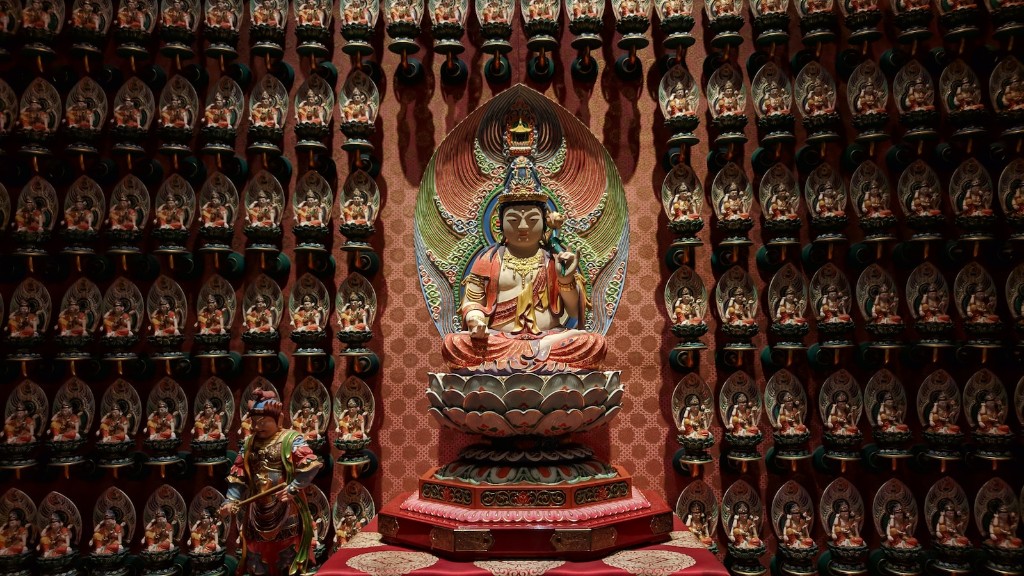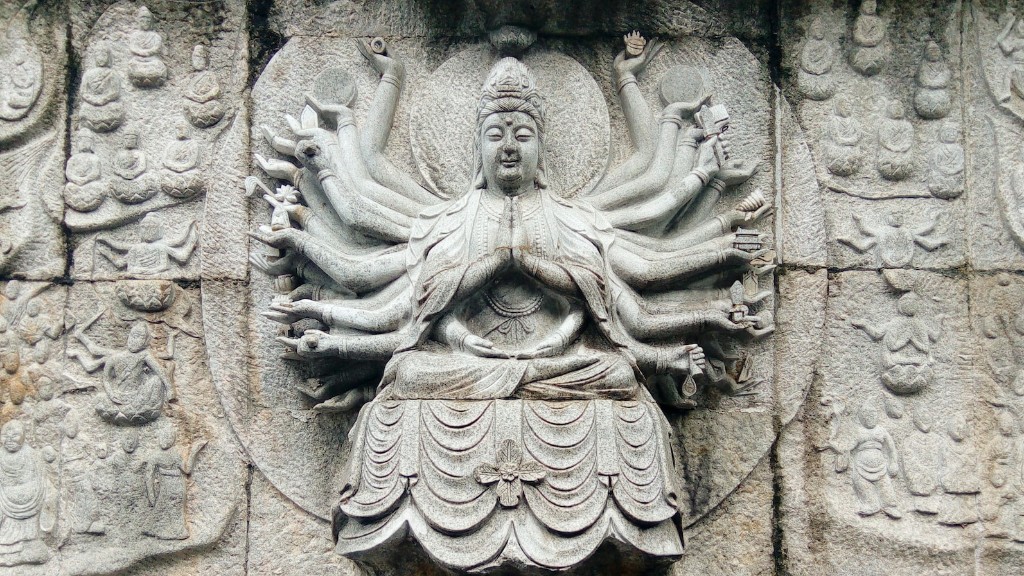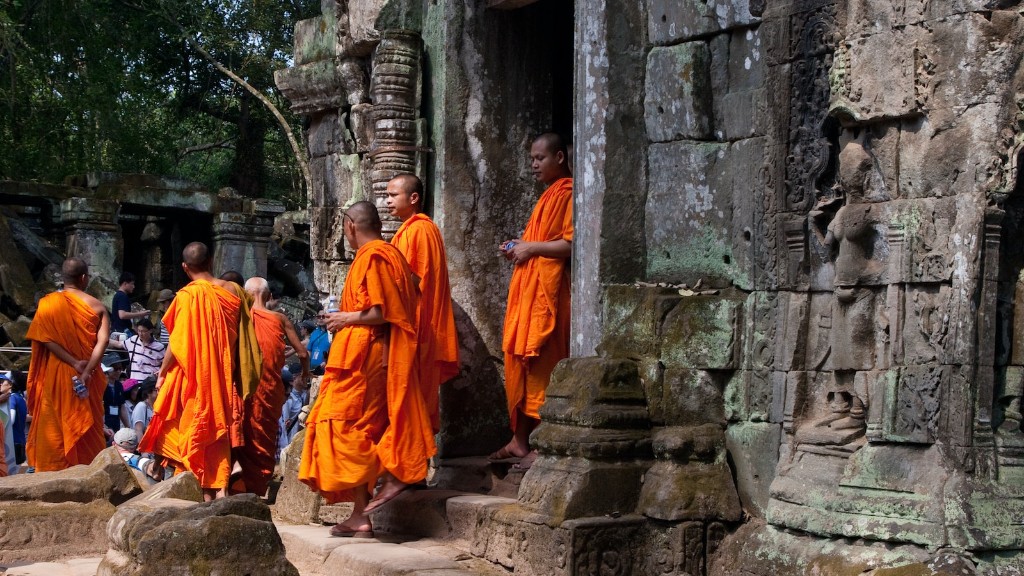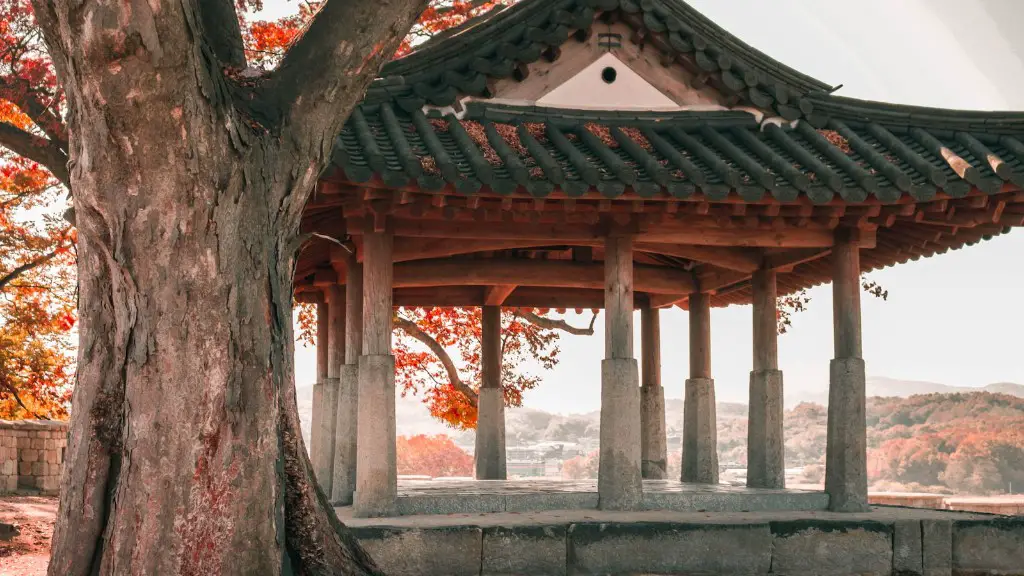Buddhism does not focus on the origins of the universe or the concept of a creator deity. Instead, Buddhists believe that it is more important to focus on our own journey and ending the cycle of rebirth. By following the Noble Eightfold Path and achieving Nirvana, we can break free from the cycle of birth and death.
Buddhism does not really have a concept of Creation in the way that other religions do. For Buddhists, the universe is more like a series of interconnected causes and conditions, with everything being interdependent on everything else. This means that there is no one thing that can be said to be the cause of everything else.
Does Buddhism believe in a creator?
Buddhism is a tradition focused on spiritual liberation, not on the worship of a creator god. The Buddha himself rejected the idea of a creator god, and Buddhist philosophers have even argued that belief in an eternal god is nothing but a distraction for humans seeking enlightenment.
Buddhist teaching views life and death as a continuum, believing that consciousness (the spirit) continues after death and may be reborn. Death can be an opportunity for liberation from the cycle of life, death and rebirth.
How were humans created in Buddhism
Humans originated at the beginning of the current kalpa as Brahma-like beings reborn from the Ābhāsvara Brahma-realm. They were then beings shining in their own light, capable of moving through the air without mechanical aid, living for a very long time, and not requiring sustenance.
The Buddhists, following the traditions of their Indian fore-fathers, saw the universe as infinite in time and space, and filled with an infinite number of worlds like our own. Above our ordinary world, there are two realms: the realm of form (rupa-dhatu) and the even higher realm of formlessness (arupa-dhatu).
Do Buddhist believe god exists?
Buddhists do not believe in any kind of deity or god, although there are supernatural figures who can help or hinder people on the path towards enlightenment. The Buddha himself was a human being who attained enlightenment through his own efforts, and he is revered as an example to be followed. Buddhists believe that it is possible for anyone to achieve enlightenment, and that the path to enlightenment is through understanding and compassion.
There are some high level Buddhists who have drawn analogies between Jesus and Buddhism. For example, in 2001 the Dalai Lama stated that “Jesus Christ also lived previous lives”, and added that “So, you see, he reached a high state, either as a Bodhisattva, or an enlightened person, through Buddhist practice or something like that”. Thich
What are the 3 main beliefs of Buddhism?
Buddhism is a religion that is based on the teachings of Siddhartha Gautama. The main principles of this belief system are karma, rebirth, and impermanence. Buddhism teaches that everything is subject to change and that nothing lasts forever. This includes the belief that after we die, we are reborn into another life. karma is the principle of cause and effect, and it is what determines our future lives. Buddhism also teaches that we should live in the present moment and not worry about the past or the future.
There are a few things to unpack in this question. First, the idea that all living beings are the sons of God. This is a theological argument that has been debated by religious scholars for centuries. Second, the idea that God should use happiness to cover suffering. This is a more philosophical argument that has been debated by thinkers for centuries. Third, the idea that those who worship God should not have suffering but should enjoy happiness. This is a more personal argument that has likely been debated by individuals for centuries.
The reality is that all three of these arguments are moot points. We cannot definitively say whether or not all living beings are the sons of God. We also cannot definitively say whether or not God should use happiness to cover suffering. And we cannot definitively say whether or not those who worship God should not have suffering but should enjoy happiness.
What we can say definitively is that suffering exists in the world. And it exists for everyone, regardless of whether or not they are the sons of God or whether or not they worship Him. Suffering is a part of the human condition. It is something that we all must face at some point in our lives.
So, while the arguments above may be interesting to debate, they ultimately don’t matter
What happens to the dead in Buddhism
Buddhists believe that death is a natural part of the life cycle. They believe that death simply leads to rebirth. This belief in reincarnation – that a person’s spirit remains close by and seeks out a new body and new life – is a comforting and important principle.
Buddhists believe that the world was not created once upon a time, but that the world has been created millions of times every second and will continue to do so by itself and will break away by itself. They believe the beginning of this world and of life is inconceivable since they have neither beginning nor end.
Do Buddhists believe in the multiverse?
The idea of a universe within a universe is a recurring theme in both Buddhism and Hinduism. This reflects the belief in Buddhist cosmology that the universe is composed of many universes, each containing its own smaller universes. This theme of smaller universes within larger universes is also found in Hinduism, where it is known as the concept of brahmanda.
This is my last birth. There will be no rebirth after this one. Never will I come back here, but, all pure, I shall win Nirvana.
Did Buddha believe heaven
In Buddhism, there is no concept of punishment or reward and there is no divine being who decides who goes to hell or heaven There is merely the illusory results of our thought, words and deeds, which we call karma.
Buddhism is a religion that does not believe in a supreme god or deity. instead, Buddhists focus on achieving enlightenment—a state of inner peace and wisdom. Once a person reaches this spiritual echelon, they are said to have experienced nirvana. The founder of Buddhism, Buddha, is considered an extraordinary being, but not a god.
Does Buddhism believe in soul?
There is no such thing as a soul or self according to Buddhism, but rather a cycle of transmigration consisting of rebirth and redeath. This is the fundamental nature of existence.
There is no one word that can accurately describe the Hindu religion. Hinduism is an umbrella term that encompasses a wide variety of beliefs and practices. The word Hindu is an exonym, and while Hinduism has been called the oldest religion in the world, many practitioners refer to their religion as Sanātana Dharma (Sanskrit: सनातन धर्म, lit. eternal law).Sanātana Dharma is a type of eternalism, which believes that Dharma (righteous living) is eternal and unchanging. This belief is reflected in the Hindu scriptures, which state that Dharma is the foundation of the universe and that it is the law that upholds and sustains it.Sanātana Dharma also teaches that there is a cycle of birth and death (samsara), and that the soul (atman) is reborn into another body after death. Hindus believe in karma, which is the law of cause and effect. Karma determines the circumstances into which a soul is reborn.
Can Buddhism and Christianity coexist
Christians and Buddhists have a very different outlook on life. Christians believe in one God who created the world and offers salvation to those who follow Him. Buddhists, on the other hand, believe in reincarnation and Enlightenment. For Buddhists, the goal is to achieve nirvana, or a state of perfect peace. because of these different beliefs, the two groups are not compatible.
The book “The Jesus Machine” by Stephen Mansfield raises the fascinating question of how could Jesus, living 500 years after Buddha and 3,000 miles away, embody teachings so similar in nature to his predecessor? Borg said some historians believe that Buddhist principles had filtered through the Roman Empire by the time of Jesus.
Warp Up
Buddhism does not believe in a creator God. Instead, it teaches that the universe is eternal and always changing.
Buddhism does not focus on the origin of life, but on understanding the nature of reality and achieving liberation from suffering.





